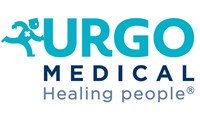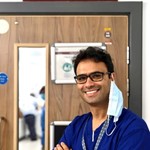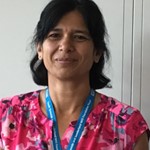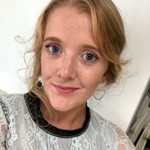17th National Wound Care Conference Programme
8:15 AM - 8:55 AM
Registration
8:55 AM - 9:00 AM
Introduction by chair
9:00 AM - 9:35 AM
Overview of the NWCSP vision for improving data and information – progress to date
Ann Jacklin, Associate Director , National Wound Care Strategy Programme (NWCSP)
9:35 AM - 10:00 AM
Improving pressure ulcer data and information using a diagnostic approach to pressure ulcer improvement
10:00 AM - 10:35 AM
Mandating wound care education + Using the NWCSP Workforce Framework to improve knowledge and skills
Kerry Carmichael, Professional Lead for Tissue Viability, CHCP CIC
10:35 AM - 11:00 AM
Break & exhibition viewing
11:00 AM - 11:35 AM
Paediatric Tissue Viability and wound care – assessment and management, TVN’s are not given adequate training and learn on the job
Rachel Allaway, Tissue Viability Clinical Nurse Specialist, Great Ormond St Hospital for Children
This presentation will look at the differences in skin from neonate to adolescent, discuss challenges faced in Paediatric Tissue Viability and wound care and look at paediatric case studies.
11:35 AM - 12:00 PM
Surgical Wound Complications – how to approach quality improvement
This presentation will therefore look at a range of strategies to try and improve the prevention of SWC’s including educational resources, updating the recommendations, patient resources, improvement in clinical data.
12:00 PM - 1:00 PM
Lunch & exhibition viewing
1:00 PM - 1:35 PM
Developing a wound care formulary and optimising care utilising clinical evidence
Dr Leanne Atkin, Vascular Nurse Consultant, Mid Yorks NHS Teaching Trust/University of Huddersfield

- Explain the value of implementing a formulary: facilitating the decision-making process and guiding clinicians towards evidence-based and cost-effective practice.
- Discuss the importance of having an easy-to-use and inclusive formulary translated into clinical pathways to support adoption by end users.
- Explain the importance of considering the overall costs of patient treatment and the wider health economy, and not just unit costs, when evaluating a product.
- Determine what are the key factors needed to measure success
1:35 PM - 2:05 PM
Wound healing and nutrition
Sarah Bradbury, Clinical Research Director, Welsh Wound Innovation Centre
2:05 PM - 2:35 PM
How lower limb wound care became a Greater Manchester ICB Priority in their 5 year plan
2:35 PM - 3:00 PM
Break & exhibition viewing
3:00 PM - 3:35 PM
Self-management and wound care
Ayesha Marshall, Nurse Consultant Patient Safety & Tissue Viability, South Tyneside and Sunderland
It refers to the collaborative partnership between clinicians and patients to support individuals to manage their wounds themselves. Benefits include greater patient engagement, improved physical health, reduced stress and anxiety, boosts your self-esteem and protects your mental health. The psychological, emotional and social impacts of coping and living with a wound are wide-ranging, including pain, low self-esteem, social isolation, anxiety and depression. It is evident that a change to the model of care provision for people with wounds is needed, and self-care needs to be encouraged and promoted as early in the treatment journey as possible.
3:35 PM - 4:05 PM
Implementing the Lower Limb Recommendations – Achievements and Challenges
Hannah Blake, Tissue Viability Clinical Nurse Specialist , Livewell Southwest
Mike Oliver, Programme Manager, Livewell Southwest
4:05 PM - 4:10 PM
Close of conference









